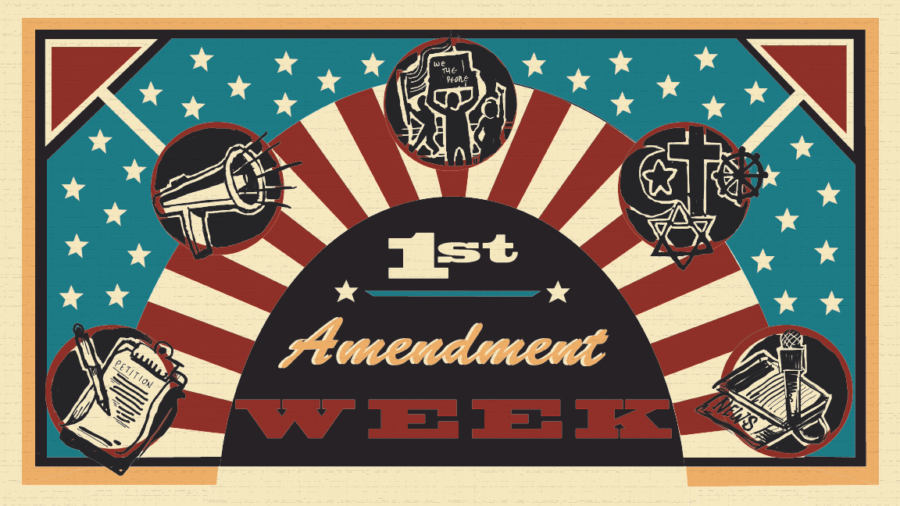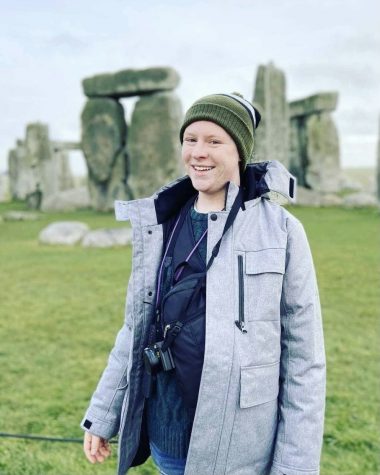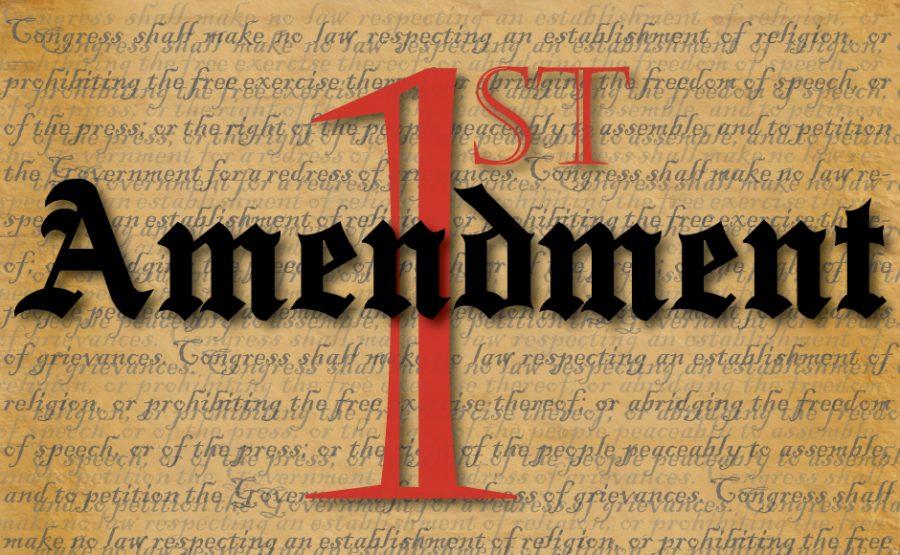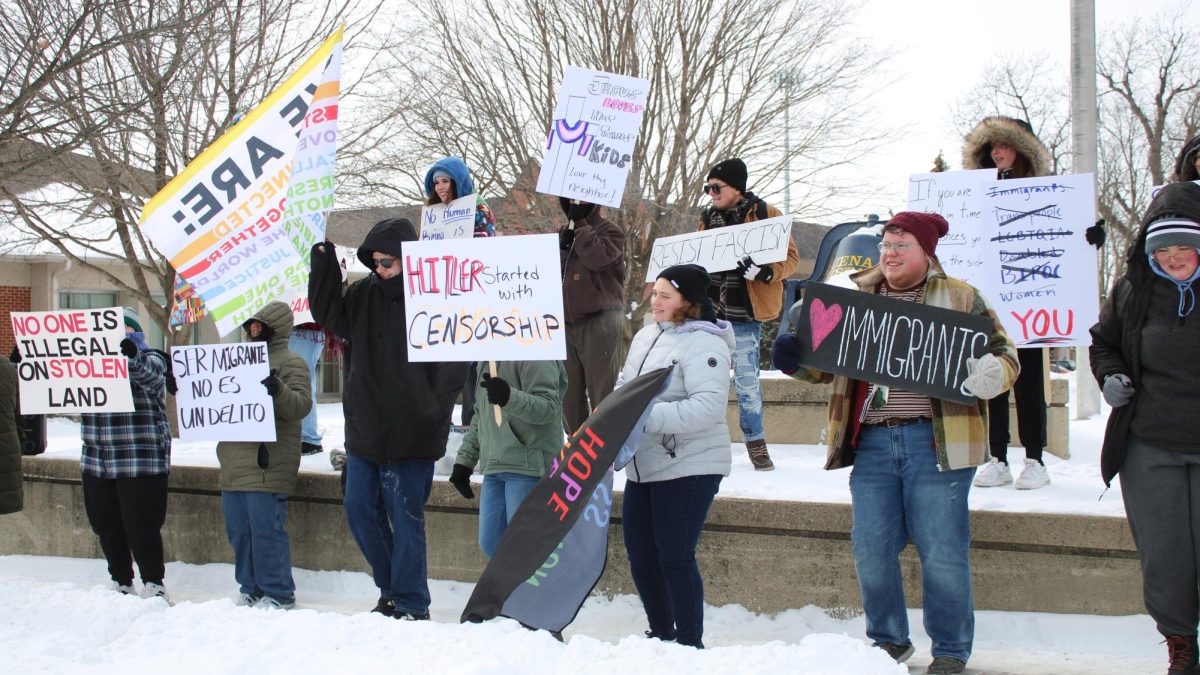The Freedom of Religion must end where it infringes on others’ rights
April 28, 2021
Freedom of religion is one of Americans’ most important rights and guaranteed in the First Amendment. It’s cited in countless Supreme Court cases and affects our lives daily.
One thing that is constantly being debated, however, is just how far freedom of religion can extend. It’s my opinion that freedom of religion ends at the point of infringing on other citizens’ rights. There is no situation where your right to exercise your faith is more important than another citizen’s right to life, liberty and happiness.
One of the most famous examples of this issue is with the legalization of gay marriage. The biggest argument against this was from Christian legislators outraged at the fact that their “religious freedom” was being infringed upon. Was this actually the case? If you look at the original text of the First Amendment, it states that, “Congress shall make no law respecting an establishment of religion, or prohibiting the free exercise thereof…” This means that not only is religion protected by the government, but people are also protected from religion. This prohibits things like establishing a national religion or outlawing other ones.
So, because citizens are protected from having a certain religious group’s ideology become law, then the issue of legalizing gay marriage should be a moot point. The right to marry falls under the category of life, liberty, and the pursuit of happiness, inalienable rights that every American citizen is supposed to possess.
It’s possible to protect a group of people’s rights without infringing on another groups. Not only does freedom of religion get brought into discussion for legislation, but also as arguments for certain discriminations. There are several instances where a medical professional or counselor has refused treatment to LGBTQ+ individuals on the basis of religious freedom. For example, a school counselor was fired after refusing to work with LGBTQ kids, and then tried suing her school for infringing on her religious freedom.
Another woman, Jennifer Keeton of Augusta State University, claimed it was her religious right to counsel LGBTQ youth from a stance that their lifestyle was “immoral.” These actions could both be wildly harmful to students, and looking at the suicide rates of LGBTQ youth, even cost a life. According to the Trevor Project, LGBTQ youth, “are almost five times as likely to have attempted suicide compared to heterosexual youth.”
It should be obvious that no one’s rights to practice religion are worth losing a life.
If a religion claimed to need to have human sacrifice to practice, obviously no one would agree that it’s covered by the First Amendment. So why do we make the exception when Christianity is under fire? Just because one religion is more prominent than the other, it doesn’t mean it should get special treatment.
Under the First Amendment, all religion is created equal. So, obviously freedom of religion has definitely been stretched slightly past its limits in the past. It seems to be a prominent theme in Christianity that its doctrine should be spread far and wide, to all people regardless of faith. The truth is, America isn’t a theocracy, and because of that, religion should play no part in lawmaking.
Even if we were to impose “Christian” ideals on a country, what would that mean? There are so many different branches of Christianity, all with their own interpretation of the Bible and other religious texts. If we took it literally, that would mean that slavery would still be legal, wearing mixed fabrics would be outlawed, and the whole country would shut down on Sunday. This clearly isn’t reasonable, which is why the First Amendment included freedom from religion as well.
The only solution I see for this problem is to better respect the separation of church and state. Many legislators actively tout that they will protect Christian values while in office. Legislators’ religious beliefs shouldn’t even factor into their career, let alone influence their decisions. As one of the most hotly debated freedoms, freedom of religion has a lot of technicalities. As a society, we need to realize that just because a religion is more prominent or the cultural norm, doesn’t mean everyone in our country practices it. Recognizing this, we also have to recognize that enforcing religious beliefs in our lawmaking becomes intensely problematic. We need to remember that although the First Amendment protects religion, it also protects from religion. So, the freedom of religion must end where it infringes on others’ rights.










Mark Ditmer • Jan 13, 2025 at 11:24 am
Religion, more specifically people that are religious, more so than not, do not practice what they preach. And historically, religion is dangerous, accounting for massive death, destruction and oppression throughout the history of mankind. Religion is neither factual nor compassionate, and largely hypocritical. And now that there is a revival of trying to merge church and state, it’s grossly prejudicial to those who don’t believe in religion, and those who aren’t a so called Christian. If society couldn’t trust it over the millennia, why would I or any other logical human being trust Christianity now? My sincere example of this is when my mother was dying, the Catholic Church didn’t have the time to come to her bedside and give her last rites. The Church refused to give her a mass after she died because they wanted a donation to do so, even though they regularly have mass, and could have mentioned her, which they didn’t. And lastly, knowing that she was dead, they continued to send requests for donations. When I called them at the church to remind them she had passed away and could no longer donate, they asked if anyone else in the household would continue to do so, so they could continue to do their wonderful work. I reminded them that they weren’t doing well if they ignored my moms needs, and then tried to pander for more money from a family that was jilted by the church. Do I trust religion? No. Would fiction being taught in schools about a group of people that have murdered, tortured or otherwise oppressed its own congregation or others that don’t believe what they believe be a good idea? No.